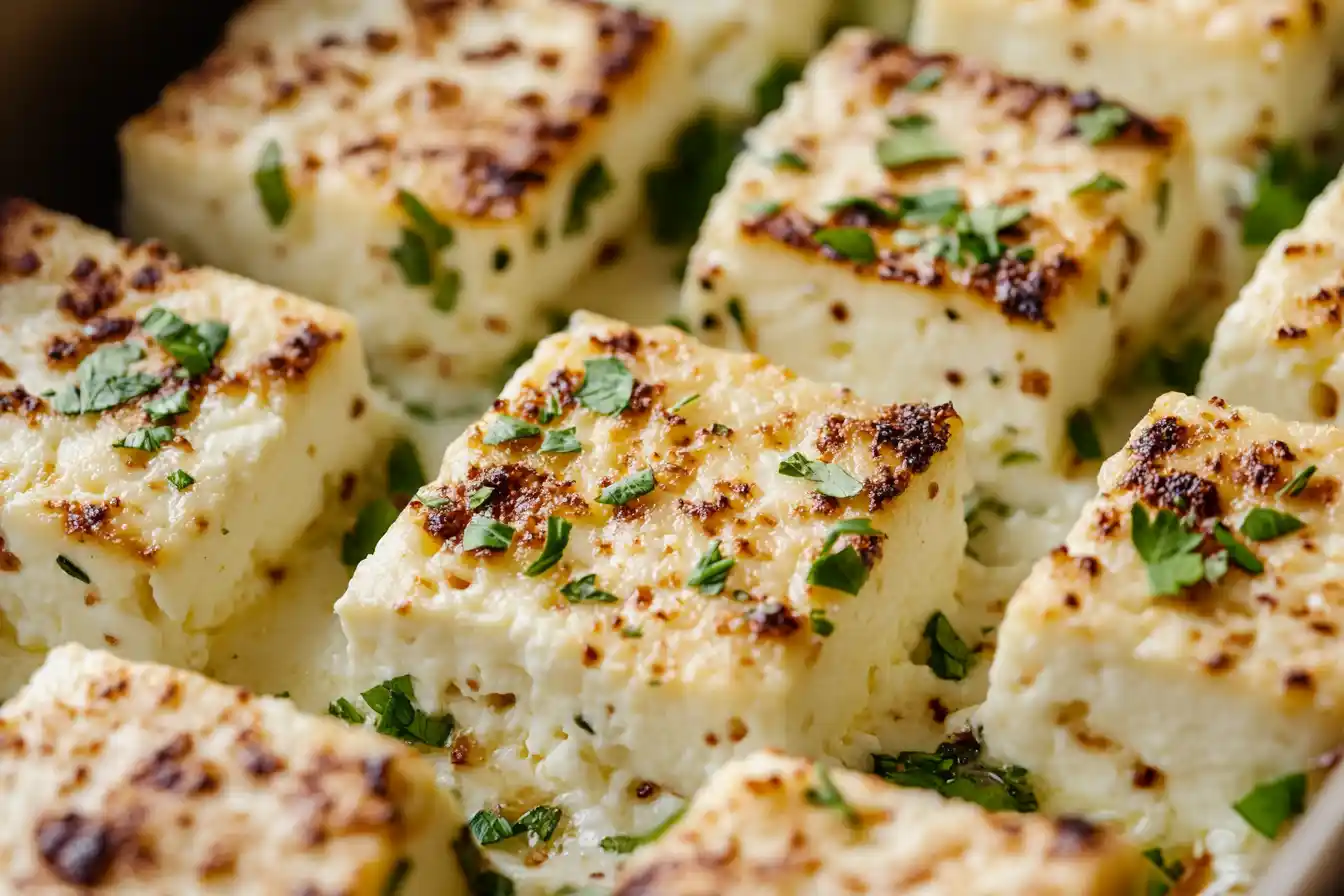What does cottage cheese taste like cooked? The answer is, quite different! Cooking transforms its flavor, often making it milder and less tangy. This article explores exactly how heat alters its natural taste and texture.
Exploring the Natural Taste of Cooked Cottage Cheese
Cottage cheese, a dairy product known for its mild, slightly tangy taste, undergoes a transformation when cooked. Therefore, understanding how heat affects its flavor is important. This article delves into the natural flavor changes, texture alterations, and different culinary uses. We’ll also cover how cooking enhances its natural properties.
The Natural Flavor Profile of Uncooked Cottage Cheese
Before discussing cooked cottage cheese, it’s important to understand its natural uncooked flavor. Uncooked cottage cheese typically has a fresh, slightly acidic taste. This natural acidity is balanced by a creamy, milky undertone. Additionally, the texture is usually soft and lumpy. This gives it a unique mouthfeel. The slight saltiness further complements its natural flavor.
How Cooking Alters the Natural Taste of Cottage Cheese
Cooking cottage cheese significantly changes its taste. The tangy flavor of natural cottage cheese tends to mellow when heated. Furthermore, the acidic notes become less pronounced. Instead, you might notice a more savory flavor emerge. The creamy undertones become more noticeable as the tartness diminishes. Consequently, the overall taste shifts from tangy to mild and savory.
Texture Changes: The Impact of Heat
Besides altering the flavor, cooking also changes the texture of cottage cheese. Natural cottage cheese is often described as lumpy and wet. However, when cooked, it can become smoother and more uniform in consistency. The curds might soften, which makes it easier to blend into sauces or dishes. On the other hand, if cooked at high heat it might become more grainy. The transformation of the natural texture depends on the cooking method used.
For more recipe ideas, visit Naturally Great Cottage Cheese Recipes.
Culinary Uses of Cooked Cottage Cheese

The altered taste and texture of cooked cottage cheese lend themselves to various cooking applications. Therefore, it is frequently used in recipes as a creamy base, a binding agent, or a source of natural protein. Here are a few popular ways to use it.
Baking with Cooked Cottage Cheese
Cooked cottage cheese works wonderfully in baked goods. In addition, it is commonly used in casseroles and cheesecakes. The mild flavor and creamy texture can add richness. It acts as a great replacement for richer dairy, keeping things lighter. Furthermore, its natural moisture can help keep baked goods soft and moist. Consequently, it’s a healthy and natural addition.
Adding Creaminess to Sauces and Dips with Natural Cottage Cheese
Cottage cheese, once cooked, can be blended into sauces and dips for added creaminess. The mild taste and smooth texture make it a natural base. Therefore, it’s a great natural alternative to heavy cream. Likewise, it can add thickness without the extra fats. This can create delicious, creamy natural flavors.
Cottage Cheese in Natural Breakfast Dishes

Cooked cottage cheese is an excellent addition to breakfast dishes. Consider using it in scrambled eggs for added creaminess. It blends well with other ingredients while also adding natural protein. You can also bake it into a breakfast casserole. Hence, it’s a naturally versatile option.
Natural and Healthy Meal Options
Cooked cottage cheese can also be part of a healthy meal. It is a great source of natural protein. Its altered texture blends well with many things. Therefore, it’s easy to incorporate into healthy recipes. Accordingly, it can be a natural choice for a light meal.
For other preparation methods, check out Popular Ways to Eat Cottage Cheese.
Factors Affecting the Natural Taste and Texture

The final taste and texture of cooked cottage cheese also depend on several factors. This includes the cooking method, temperature, and also the ingredients it’s combined with. Therefore, understanding these elements is important.
Cooking Method
The method of cooking can have a big impact on the taste. For instance, baking results in a different texture compared to frying. Moreover, slow cooking will have a milder effect on its flavor. Therefore, the choice of cooking will change its natural properties.
Temperature
Cooking at high temperatures can cause the cottage cheese to dry out. Consequently, it might also become grainy. Low temperatures help keep its texture smoother. Thus, managing temperature is essential for desired results. The natural flavor is also better preserved at lower temps.
Other Natural Ingredients
Ingredients like vegetables, seasoning, and spices will also affect the taste of the natural cottage cheese. The specific components you add can shift its flavor profile considerably. Therefore, natural flavor combinations are vital.
To explore its health benefits, read Goodness of Cottage Cheese: Health Benefits.
Tips for Cooking with Cottage Cheese Naturally

When cooking with cottage cheese, several tips can help achieve the best results. These guidelines ensure the final dish is tasty and texturally pleasing. So, let’s examine some of them.
Use the Right Amount of Heat
Using moderate heat when cooking cottage cheese is recommended. Too high of a temperature can cause the proteins to seize up and make the cheese rubbery. Therefore, keeping the temperature lower will allow the cottage cheese to cook more gently. Consequently, it helps maintain its creamy texture and natural flavor.
Consider a Little Liquid
Adding a bit of liquid, like milk, cream, or broth can help prevent the cottage cheese from drying out when cooked. This is particularly useful for sauces and casseroles. The added moisture maintains its natural texture. Consequently, it improves the overall mouthfeel of the dish.
Blend for a Smoother Texture
If you want a smooth texture, blend the cooked cottage cheese. This is important for making dips or sauces. The blending process ensures a creamy consistency. The natural texture transforms into something silkier. Therefore, this enhances the recipe’s overall appeal.
Natural Seasoning Is Important
Cottage cheese has a naturally mild flavor, so use seasoning to enhance it. Don’t hesitate to add herbs, spices, salt, or pepper. The addition of natural seasoning will elevate the overall dish. Thus, be creative with your seasonings.
Combine with Other Ingredients Carefully
Always be mindful of the other ingredients you are using. Strong flavors can easily overpower the delicate taste of cottage cheese. Therefore, consider natural pairings that complement each other. Consequently, this helps you build a well-rounded flavor.
Natural Storage Tips
Cooked cottage cheese should be stored in an airtight container in the fridge. Accordingly, proper storage is important to keep it fresh. Consume it within 3 to 4 days. Natural preservation is key for best results.
For pairing ideas to enhance the flavor, see What to Mix with Cottage Cheese.
Health Benefits of Cooked Cottage Cheese
Cottage cheese offers natural health benefits even after being cooked. It is a good source of protein. In addition, it provides vital nutrients. Thus, it remains a healthy addition to a diet. Let’s explore these benefits.
Natural Protein Source
Cottage cheese is naturally protein-rich. Consequently, it is great for muscle growth and repair. This makes it a good choice for people who exercise. Therefore, it’s a natural and convenient protein source.
Source of Natural Nutrients
This dairy product provides several nutrients. These nutrients are important for good health. Natural cottage cheese also contains vitamins and minerals. This helps to contribute to overall wellbeing.
Can Be Part of a Natural Diet
Cooked cottage cheese can be included in a balanced diet. It is a good option for those limiting carbohydrates. Moreover, it’s a filling food. Thus, it can help with weight control. Accordingly, its natural composition is useful for weight management.
Considerations When Including Cooked Cottage Cheese in Your Diet
While cottage cheese is generally a healthy choice, there are things to consider. It is wise to pay attention to serving sizes and sodium levels. Accordingly, this ensures you gain the most natural benefits.
Serving Size
Be mindful of the amount you consume, especially if you are conscious of your calorie intake. Natural foods like cottage cheese have calories. Therefore, portion control is important. Natural moderation leads to a balanced intake.
Sodium Content
Some brands of cottage cheese may have higher sodium levels. Hence, check the labels. Natural varieties with reduced sodium are also available. Thus, choosing wisely is important for overall well-being.
Explore related recipes in Naturally Great Cottage Cheese Recipes.
Natural Substitutes for Cottage Cheese
If you need an alternative to cottage cheese, there are a few options to consider. This is helpful for those with dietary limitations or allergies. These alternatives offer a range of flavor and texture profiles. Therefore, it’s useful to explore these options.
Ricotta Cheese
Ricotta is similar in texture and flavor to cottage cheese. However, it has a slightly milder taste. It is a common choice for baking. Natural ricotta can be a useful substitute.
Greek Yogurt
Greek yogurt is a good alternative for those wanting a tangy option. It is often thicker than cottage cheese. Consequently, it can provide a similar texture. Thus, natural Greek yogurt can be a suitable substitute.
Tofu
Tofu is a plant-based natural alternative to cottage cheese. It has a mild flavor. Therefore, it takes on the flavors of other ingredients. It can be used in both sweet and savory dishes. The natural benefits of Tofu are well-known.
For other creative food preparation methods, visit Best Way to Cook Corn
Frequently Asked Questions (FAQs)
What happens to cottage cheese when you cook it?
Cooking cottage cheese changes both its flavor and texture. The tangy taste becomes milder and more savory. Also, the lumpy texture becomes smoother. Therefore, it will blend well into cooked recipes.
How would you describe the taste of cottage cheese?
Uncooked cottage cheese has a fresh, slightly acidic, and tangy taste. Furthermore, it possesses a creamy and milky flavor. When cooked, however, it tastes milder and more savory. Thus, the taste profile changes a lot.
Can you use cottage cheese for cooking?
Yes, cottage cheese is very versatile. It is used in many cooked recipes. It is ideal for baking, sauces, and breakfast dishes. Its creamy texture adds richness, and the natural protein content makes it a healthy option.
Is cooked cottage cheese good for you?
Yes, cooked cottage cheese remains a natural, healthy food. It is a good source of protein and important nutrients. Hence, it can be part of a balanced diet. Therefore, it is a healthy choice.
Conclusion: What does cottage cheese taste like cooked?
In summary, cooking cottage cheese changes its natural flavor and texture. Its tangy notes become milder. The texture transitions from lumpy to smoother, and cooking allows for versatile application in several dishes. Therefore, this makes it a great ingredient for many recipes. By understanding these changes, you can use cooked cottage cheese creatively. It adds natural richness and protein to your meals. It is a nutritious and naturally versatile addition to many dishes.

